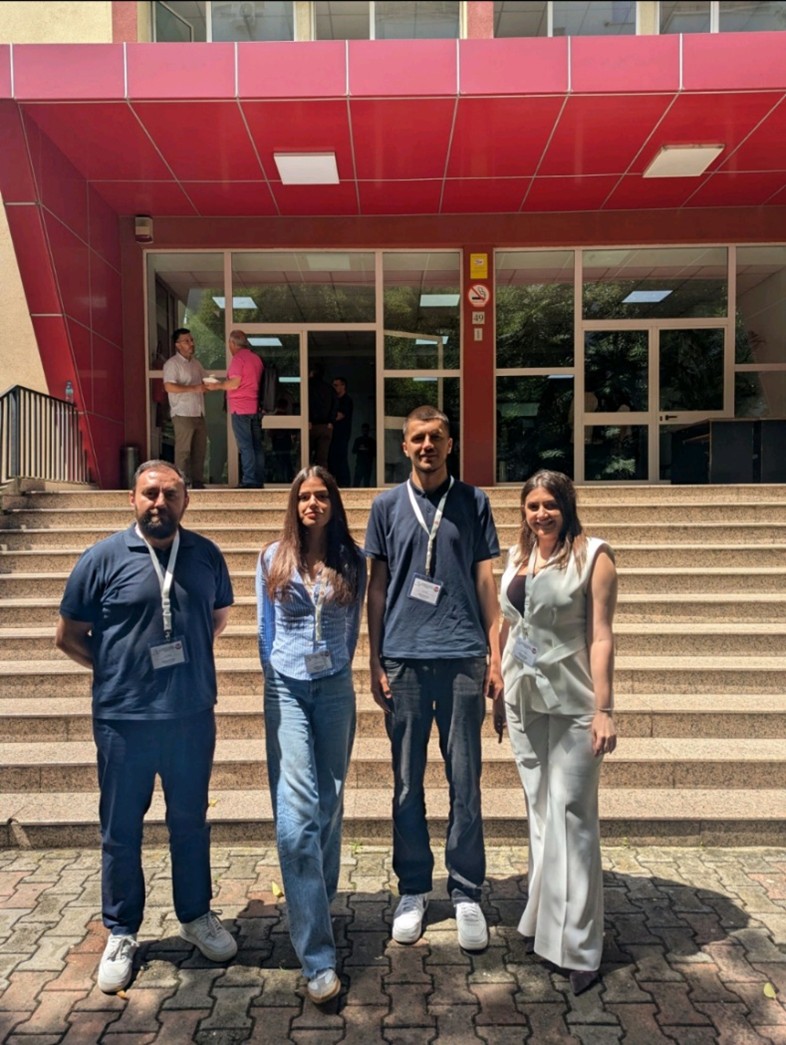Eliot Bytyçi (University of Prishtina)
The Ministry of Education, Science, Technology and Innovation of Kosovo, together with the Austrian-funded HEI25 project, is pioneering innovative approaches to link research and teaching in public universities. At the University of Prishtina, computer science students turned their coursework into hands-on research, gaining skills while promoting gender balance in academia. This initiative marks a bold step toward more innovative, competitive, and inclusive higher education in Kosovo.
The Ministry of Education, Science, Technology and Innovation of the Republic of Kosovo, in collaboration with the Higher Education Intervention (HEI25) project, funded by the Austrian Development Agency (ADA), launched last year an impactful initiative to enhance research-based teaching across public universities in Kosovo. Several projects were financed under this initiative, involving both public and private universities. One of the projects that was selected, was entitled “Empowering Tomorrow's Scholars: Advancing Research-Based Teaching in Public Universities”, and it was coordinated by the Department of Mathematics, University of Prishtina. This initiative actively engaged Bachelor and Master students in computer science, involving four female and three male students in developing research projects closely tied to their lectures or thesis topics. Research projects focused on two main themes: applying core Artificial Intelligence and Machine Learning techniques to support communities by processing invoices through Optical Character Recognition, with open-source tools; and employing Natural Language Processing, as a subfield of Artificial Intelligence, to advance the status of Albanian language in relation to other languages.
Through hands-on engagement and close mentorship, the project aimed to build students’ research capacities, but also to promote gender balance in academic participation and to enhance improve teaching methodologies in higher education. The collaboration emphasized integrating research directly into curricula, supporting the long-term quality, effectiveness, and competitiveness of Kosovo’s higher education ecosystem.
Students participating in the project had the opportunity to present their work at two academic conferences [L1] [L2], gaining valuable experience in sharing their research and networking with peers and experts. Moreover, over three papers are now indexed in digital libraries such as IEEE [1] and CEUR [2, 3]. Additionally, two research papers developed through the project have been submitted to scholarly journals for publication. One of the papers originated from a student’s Master thesis and the other one is a further extension of the work on natural language processing in Albanian.
Attending conferences also allowed students to immerse themselves in the research community, broadening their perspectives on how academic collaboration and knowledge exchange operate in practice. This comprehensive approach is fostering a new generation of skilled, confident scholars equipped to contribute meaningfully to Kosovo and beyond.
This initiative not only advances research-based teaching but also actively champions gender balance, ensuring that both female and male students have equal opportunities to excel and contribute to Kosovo’s evolving academic landscape. Moreover, it proves that students should be engaged earlier in research, in joint groups, to have a possibility of excelling in the future.

Figure 1: Participants of the conference in Tirana, June 2025.
Links:
[L1] https://sites.google.com/fshn.edu.al/rta-csit
[L2] https://conference.cs.cityu.edu.hk/icicip/ICICIP2025/index.html
References:
[1] E. Alidema, T. Ismajli, J. Gjoni, and E. Bytyçi, “Natural language processing in Albanian language,” in Proc. 13th Int. Conf. Intell. Control Inf. Process. (ICICIP), 2025, pp. 27–30.
[2] A. Rexhepi, E. Hasi, A. Haxholli, and E. Bytyçi, “Invoice and receipt optical character recognition: Review on current methods and future trends,” CEUR Workshop Proc., 2025.
[3] T. Ismajli, J. Gjoni, E. Alidema, and E. Bytyçi, “Classification of Albanian social media posts into Toskë and Gegë dialects,” CEUR Workshop Proc., 2025.
Please contact:
Eliot Bytyçi
University of Prishtina, Kosovo










